40 role of private labels in retail
The Evolving Role of Private Labels in Indian Retail Industry Photo by Flickr user Fuschia Foot via Creative Commons license. Private Labels - unlike the generic or branded offerings of the past - are becoming very integral part of the global retail landscape, which also in turn contributing heavily to generate most sought after Local Purchase Order (LPO) at various mom and pop shops. (PDF) PRIVATE LABELS IN INDIAN RETAIL INDUSTRY - ResearchGate Private labels will have a huge role to play in this. As much as 50 per cent. ... (2011) observed the growth of private labels brands in organized retail industry. The paper focuses on the private ...
GA2_Group 3_Role of Private labels in Retail sector.docx View GA2_Group 3_Role of Private labels in Retail sector.docx from MANAGEMENT 101 at Nirma University, Ahmedabad. For Office Use: Grade Retail Marketing Group Assignment No. 2 Proposal on 'Role of

Role of private labels in retail
Role of Private labels in retailing.docx - 1 Part 1... View Role of Private labels in retailing.docx from PSYCHOLOGY ABNORMAL P at Karatina University. 1 Part 1 Literature Review The Role of Private labels in retailing Sector The retail market in The Role of Private Brands and the Retail Planning Process - River Logic Private brands are, of course, those brands which are owned and produced either directly by retailers themselves, or a pool of retailers. Examples include Costco's Kirkland Signature or (originally A&P's) Eight O'Clock Coffee, which later took on a life of its own. The trend is extremely important to a retailer's survival for a number of reasons. The Strategic Role of Private Labels on Retail Competition We investigate the strategic role of private labels in limiting retail competition. Private labels are unique differentiators for retailers. By launching and credibly committing to a strong private label program, a strong retailer can limit the market potential for competing retailers. Consequently, weaker retailers may not be able to meet threshold profits and exit the market. We derive the ...
Role of private labels in retail. 4 Benefits of Private Labeling for Your Brand — Century Label Private label products use the retailer's private label brand. It is up to the end retailer to design the manufacturing, packaging, and marketing - not up to you as the creator of the good, eliminating added costs. You only pay the product cost without a premium for brand name or expensive marketing campaigns. Lower Operating Costs Private Label is a Winning Strategy for Retail Success The reason lies in the fact that private label products are exclusively available in the store that produces them. Agility to respond to trends - Agility relates to fast response and flexibility. Since retailers have greater control over their brands, they can innovate and change faster. Private Labels: Their growing importance in Retailing Bergès-Sennou et al [2004] cite a survey by LSA/Fournier1 according to which the main reasons retailers develop private labels are: to increase customer loyalty (16%), to improve their positioning (18%), to improvemargins (25%) and to lower prices (33%). Figure 1 Indian retail industry has seen some ups and downs over the past. The evolution of private labels at retail - Retail Customer Experience The evolution of private labels at retail. Half of consumers now say they seek out private brands over traditional ones. March 2, 2010. By Lewis Paine, senior vice president of retail marketing consultancy GfK Consumer. The continued importance of so-called Private Label products to leading retailers is undeniable.
Private Label Brands Roar At Retail - Forbes Whole Foods' 365 Everyday Value, Meijer's Meijer Gold and Target's 36 private or "owned" labels such as Archer Farms and Simply Balanced are just a few of today's big brands. Trader Joe ... Private Labeling in Retail: How It Works, Pros and Cons Private labels allow the retail to control the design and style of the brand it's selling. The retailer has full control over the look and feel. Therefore, s/he can guide the manufacturer in what its customers would like to see visually in store. Expanded product Line The retailer may be a resourceful business when it comes to a specific niche. Private Label : Definition, Example, Pros & Cons | Retail Dogma Private label is a concept in retailing, where a retailer contracts a third-party manufacturer to manufacture their products under certain specifications, and under a brand name that belongs to the retailer. Brand in Retail: The Role of Private Labels (The case study of cosmetic ... The issue of relationship between store brands and own label products have also clarified. Cosmeda is the one of retailer choice who has settled their store channel with the private label products and retail store concept driven by intensive competition market. This paper also explained how the store brands are important for retailers and why ...
The role of private label tiers and private label naming strategies in ... The evolution of private labels (PL) is a recent trend in the retail industry: many retailers now manage a PL portfolio that includes multiple value propositions, as well as various brand name strategies. Little research has been done, however, on how this combination of PL strategies conditions the results of the retailer that manages them. retailing-private label - SlideShare Journey of Private Labels • The origin of private label can be traced back to the '60s and '70s where the offering was cheaper, generic products. • In 1970's they were in the form of black and white labelled products. • The major improvement in packaging was the first step in the success of private label. The Role of Private Label in Retail Ecosystem | Colamatteo | IJAME The aim is to understand if the private label in modern retail could be considered as institution of the retail ecosystem, or rather, a shared language and code that affects production, retailers, customers and other actors who should contribute to value co-creation. Private labeling: Process, Advantages, and Disadvantages Private labeling is when a company manufactures a product but another company puts its branding on it. The Private Label company does not put its name on the product but instead uses the Retailer's brand. For example, a Private Label company might make shampoo. They would create the formulation, manufacture the product, and package it.
The Strategic Role of Private Labels on Retail Competition labels are unique differentiators for retailers. By launching and credibly committing to a strong private label program, a strong retailer can limit the market potential for competing...
The Strategic Role of Private Labels on Retail Competition We investigate the strategic role of private labels in limiting retail competition. Private labels are unique differentiators for retailers. By launching and credibly committing to a strong private label program, a strong retailer can limit the market potential for competing retailers. Consequently, weaker retailers may not be able to meet threshold profits and exit the market. We derive the ...
The Role of Private Brands and the Retail Planning Process - River Logic Private brands are, of course, those brands which are owned and produced either directly by retailers themselves, or a pool of retailers. Examples include Costco's Kirkland Signature or (originally A&P's) Eight O'Clock Coffee, which later took on a life of its own. The trend is extremely important to a retailer's survival for a number of reasons.
Role of Private labels in retailing.docx - 1 Part 1... View Role of Private labels in retailing.docx from PSYCHOLOGY ABNORMAL P at Karatina University. 1 Part 1 Literature Review The Role of Private labels in retailing Sector The retail market in






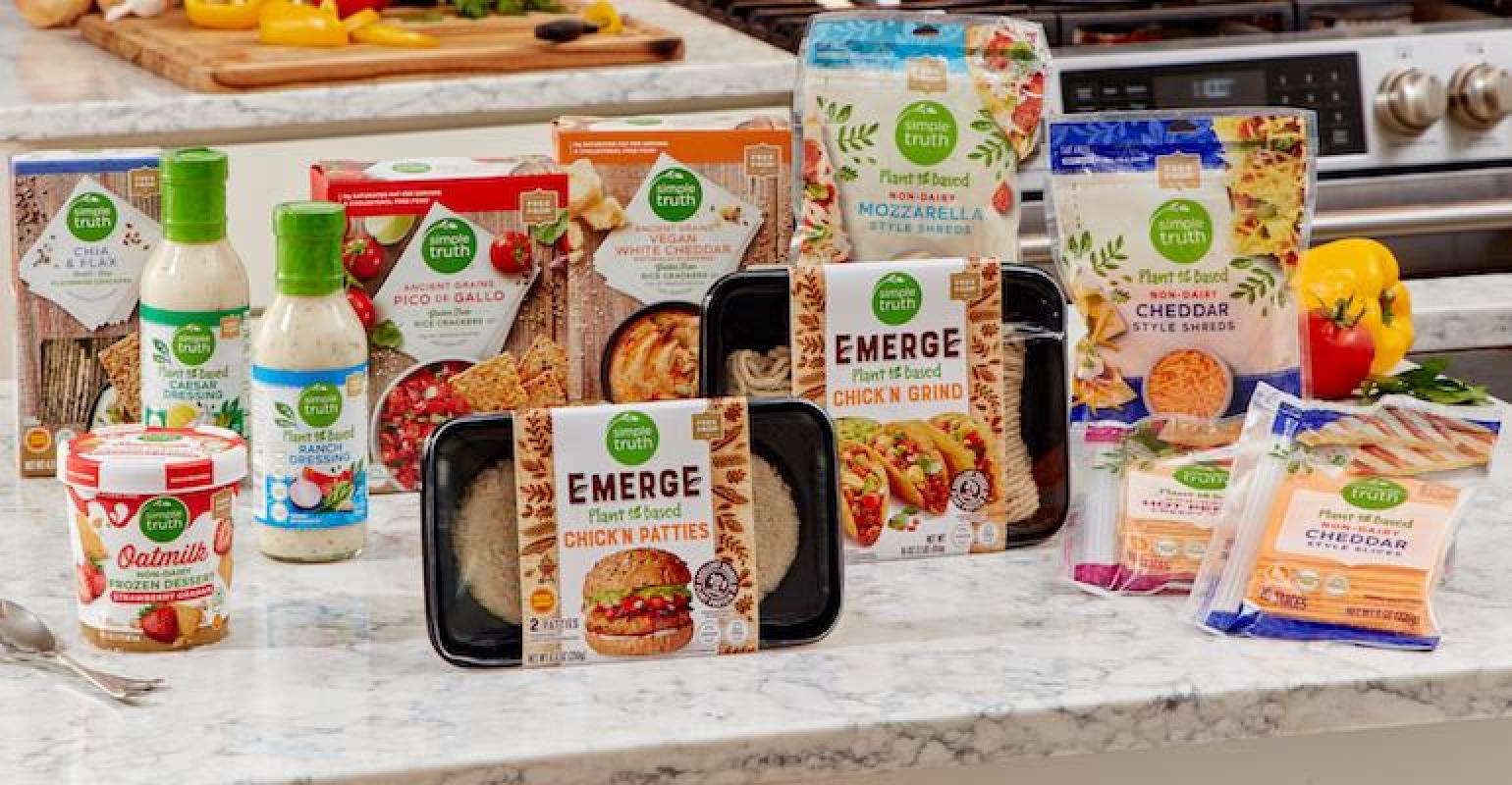







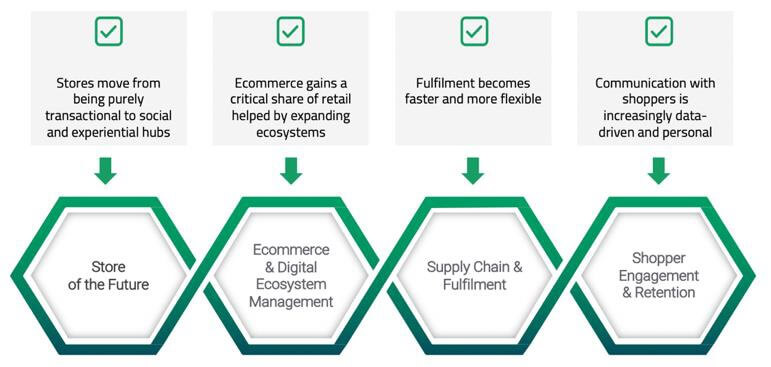
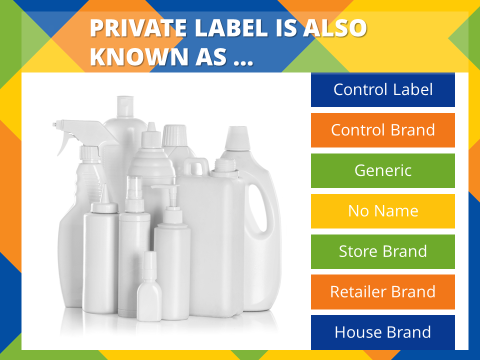




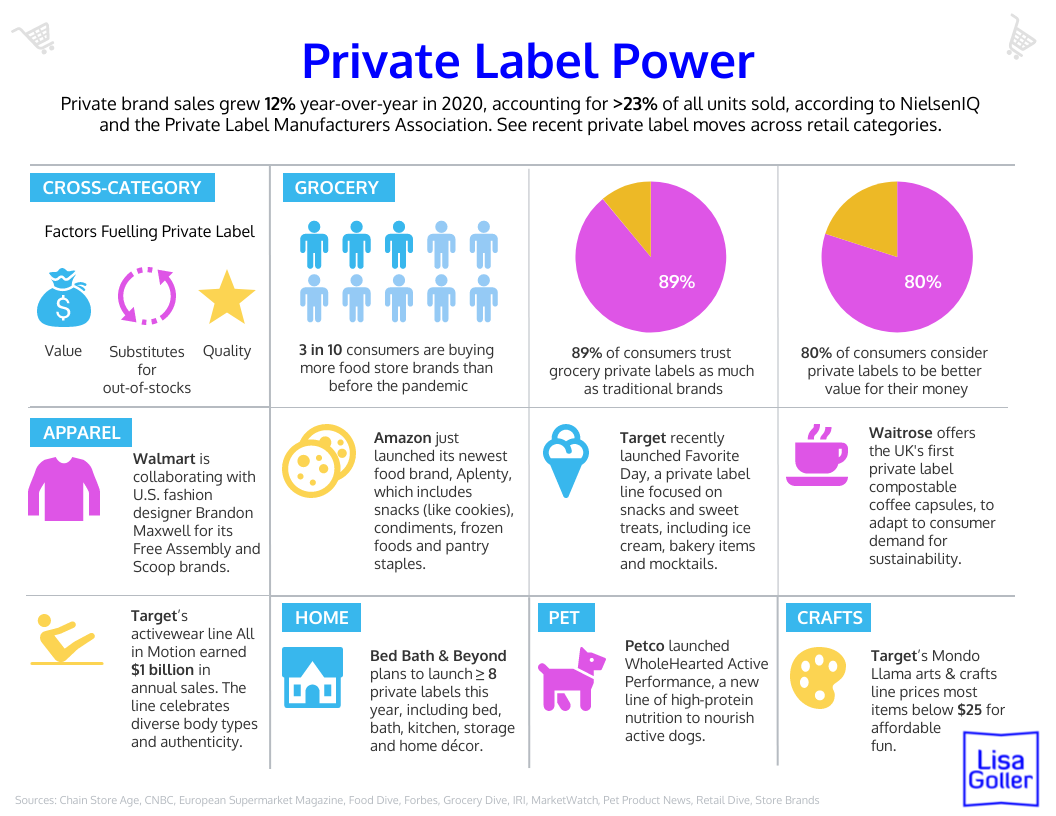








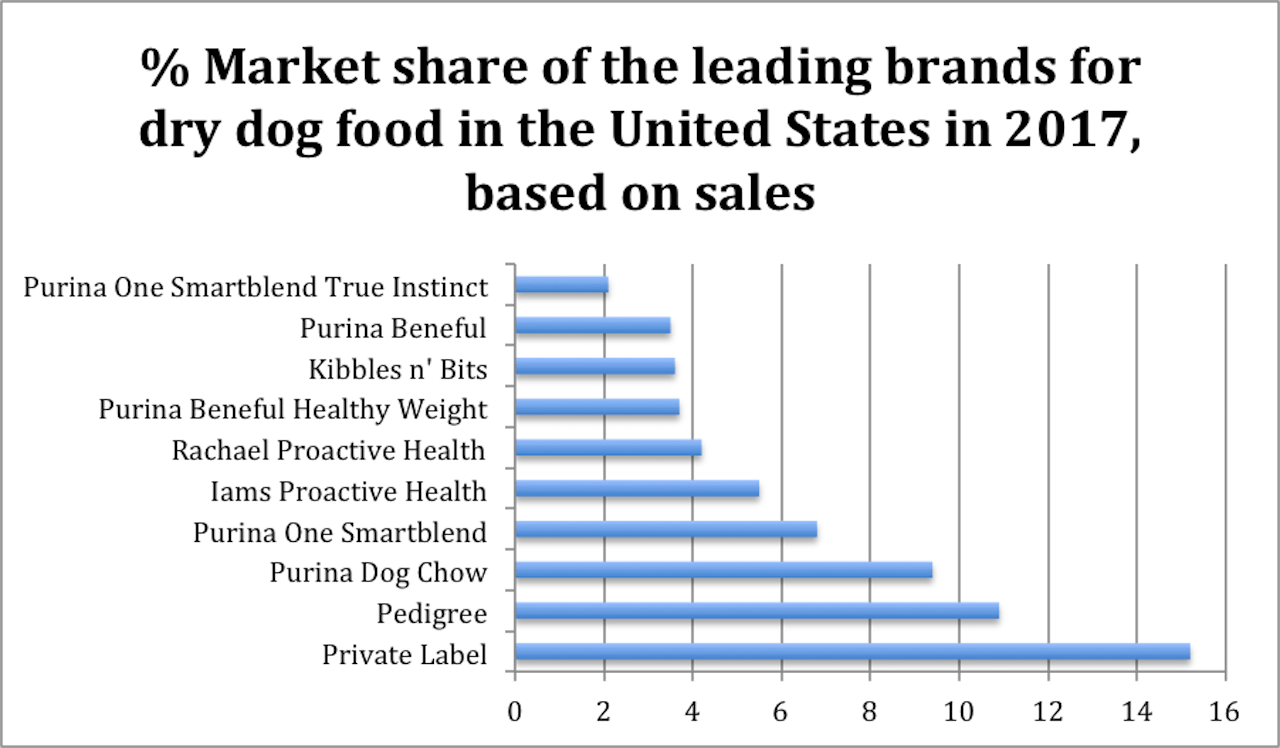


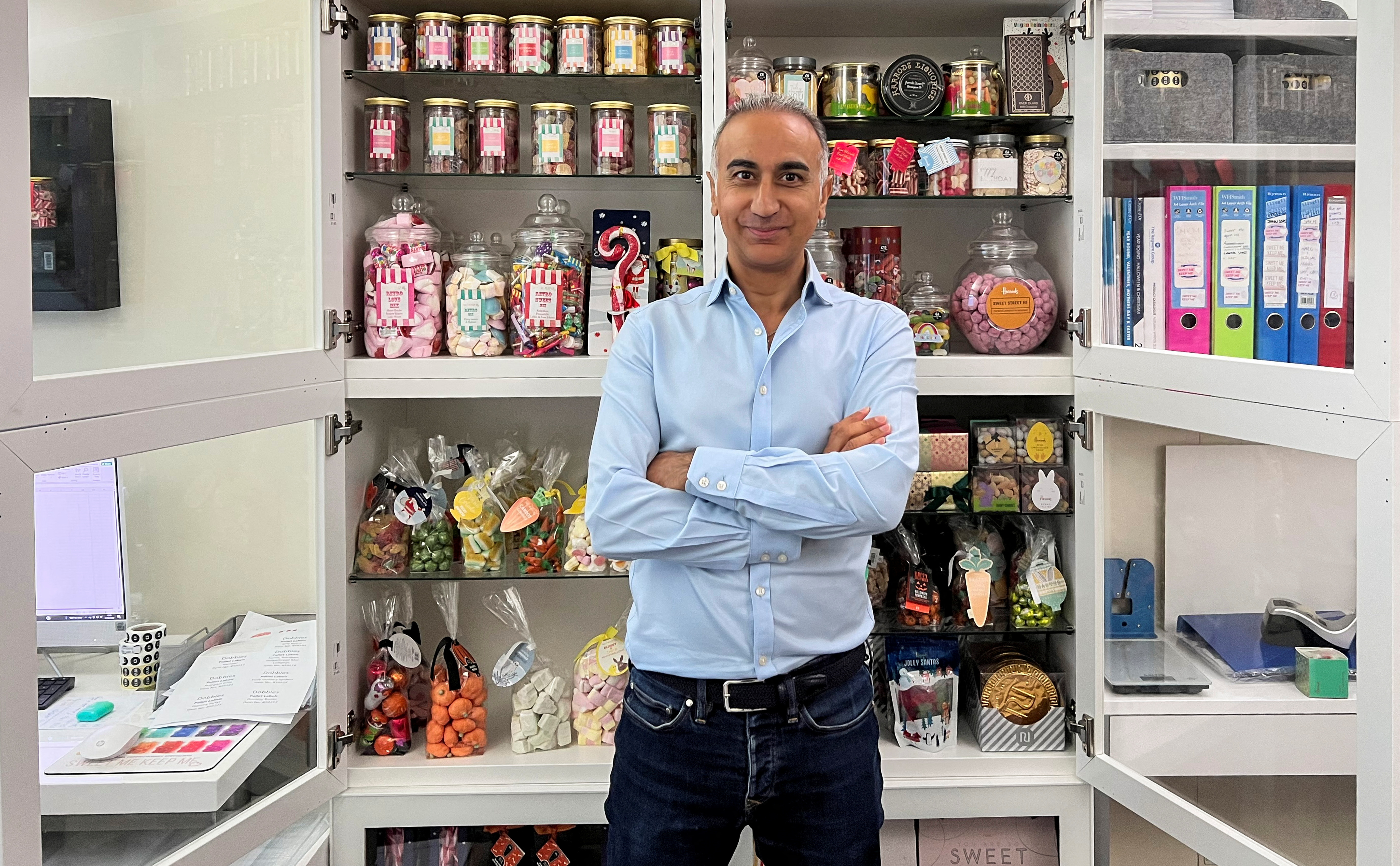

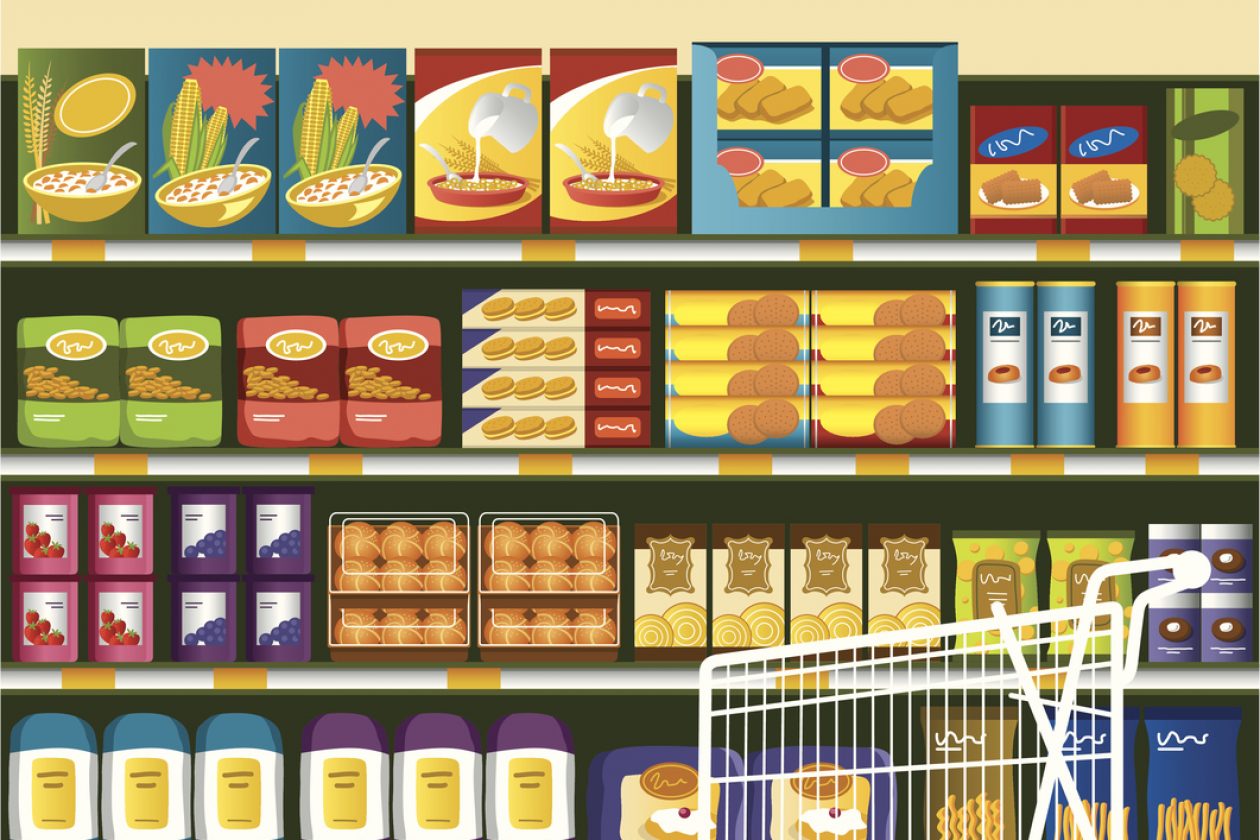


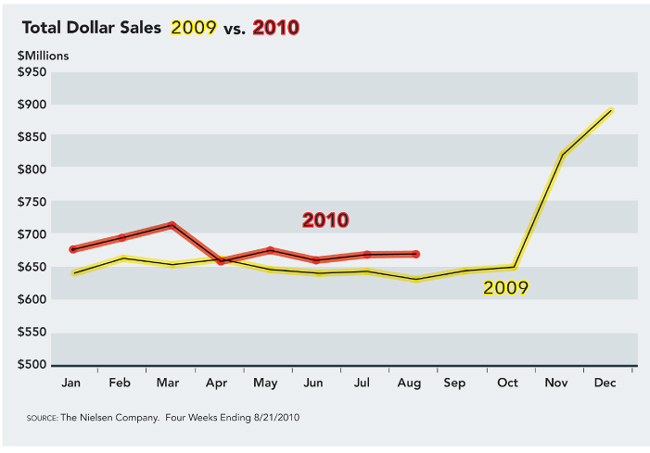
Post a Comment for "40 role of private labels in retail"